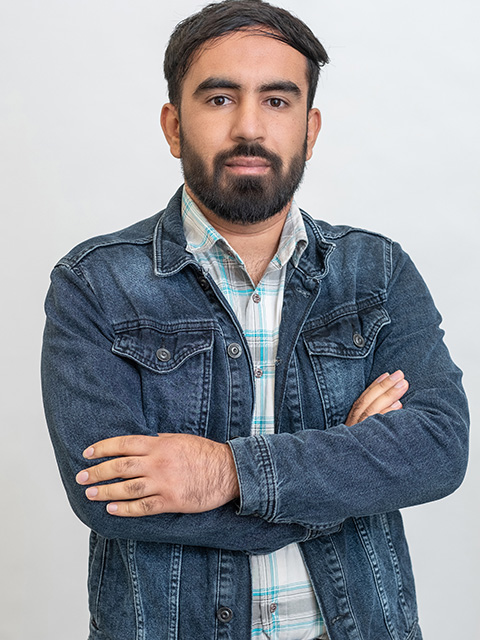Research and expertise
In my research, I apply machine learning and deep learning techniques to the domain of traffic engineering. Throughout my PhD research, my primary focus revolves around the development of microscopic traffic models using advanced machine learning methods. This encompasses the intricate dynamics of both car-following and lane-changing models, seeking to capture the nuanced behaviours inherent in complex traffic scenarios.
I am dedicated to addressing the interpretability challenges associated with machine learning methods in the realm of traffic engineering. By enhancing the interpretability of machine learning methods, I aim to not only advance the field, but also facilitate a deeper understanding of the intricate relationships governing traffic dynamics. This commitment underscores my broader objective of contributing to the development of more effective and actionable solutions within the realm of traffic engineering.
Recent publications
- Kashifi, M. T (2024). Robust spatiotemporal crash risk prediction with gated recurrent convolution network and interpretable insights from Shapley additive explanations Engineering Applications of Artificial Intelligence. https://doi.org/10.1016/j.engappai.2023.107379
- Kashifi, M. T (2023). Investigating two-wheelers risk factors for severe crashes using an interpretable machine learning approach and SHAP analysis. IATSS Research. https://doi.org/10.1016/j.iatssr.2023.07.005 (Q1, Impact factor: 3.2)
- Kashifi, M. T., Al-Turki, M., & Sharify, A. W. (2023). Deep Hybrid Learning Framework for Spatiotemporal Crash Prediction Using Big Traffic Data. International Journal of Transportation Science and Technology https://doi.org/10.1016/j.ijtst.2022.07.003
- Kashifi, M. T., Salami, B.A, Rahman, S. M & Alimi, W. (2023). Using Explainable Machine Learning to Predict Compressive Strength of Blended Concrete: A Data-Driven Metaheuristic Approach. Asian Journal of Civil Engineering https://doi.org/10.1007/s42107-023-00769-0
- Kashifi, M. T., Jamal, A., Kashefi, M. S., & Rahman, S. M. (2022). Prediction of travel mode choice with interpretable machine learning techniques: A comparative study. Travel Behaviour and Society https://doi.org/10.1016/j.tbs.2022.07.003
- Kashifi, M. T., Sighan, I., Rahman, S.M., & Ahmadi, H. (2022) Spatiotemporal Grid-based Crash Prediction – Application of a Transparent Deep Hybrid Modeling Framework. Neural Computing and Application https://doi.org/10.1007/s00521-022-07511-y
- Kashifi, M.T. , Fahad Saleh Mohammed Al-Ismail , Shakhawat Chowdhury , Hassan M. Baaqeel , Md Shafiullah , Surya Prakash Tiwari and Syed Masiur Rahman . (2022). Water-Energy-Food Nexus Approach to Assess Crop Trading in Saudi Arabia https://doi.org/10.3390/su14063494
- Farhat, F., Kashifi, M. T., Jamal, A., & Saba, I. M. (2022). Spatiotemporal projections of precipitation and temperature over Afghanistan based on CMIP6 global climate models. Modeling Earth Systems and Environment https://doi.org/10.1007/s40808-022-01361-2
- Kashifi, M. T., & Irfan, Ahmad. (2022). Efficient Histogram-Based Gradient Boosting Approach for Accident Severity Prediction With Multisource Data. Transportation Research Record https://doi.org/10.1177/03611981221074370
- Kashifi, M. T., Mansoor, U., & Rahman, S. M. (2022). Transit leverage assessment and climate change mitigation pathway for urbanized areas. International Journal of Global Warming
- Mansoor, U., Kashifi, M. T., Safi, F., & Rahman, S. M. (2022). A review of factors and benefits of non-motorized transport: a way forward for developing countries. Environment, Development and Sustainability https://doi.org/10.1007/s10668-021-01531-9
Profile
I gained my bachelor's (hons) degree in civil engineering, from Kabul University, Afghanistan, in 2015.
Subsequently, I pursued my passion in transportation-focused civil engineering, attaining my master's degree (hons), from King Fahd University of Petroleum & Minerals, in 2021.
My current focus lies in the field of developing a microscopic traffic model using advanced machine learning methods. In this endeavor, I am particularly enthusiastic to incorporate human factors to enhance the real-world applicability of the model.
Awards
- The prestigious Student of the Year Award, 2012, Kabul University
- Recipient of the Best Departmental Research Award, 2021, King Fahd University of Petroleum & Minerals
